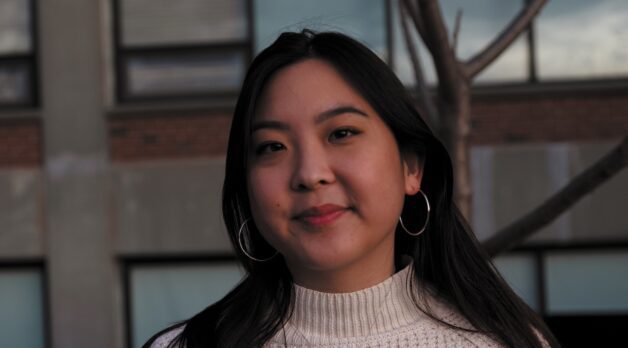Annie Ning
 Annie Ning
Annie Ning

Recently, Annie Ning has been digging through photos and videos from her childhood, which was split between her birthplace of Illinois and her parents’ native China. “I have absolutely no memory of this, but there were two years where I guess I really wanted to be a filmmaker,” she says. “I can hear myself on camera yelling ‘action!’ to my friends and explaining how to frame a shot.”
About to begin production on a short inspired by her experience at a Chinese international school circa 2008, she’s been using this personal archive as a major reference point. Set “right on the cusp” of the Beijing Summer Olympics, it centers on a French-Chinese family that moves into a gated community of wealthy locals and expats. Incorporating elements of “dark comedy, drama and thriller,” the short sees tensions rise after something bites their daughter as she swims in a man-made lake. Featuring dialogue in English, French and three Chinese dialects, Ning notes that this is “one of the more challenging projects” of her career so far, compounded by the fact that she’s not fluent in all of these tongues, particularly French. “Multiple translators have sat down with me, each putting part of their perspective into the script,” she says.
Her previous short, Invasive Species (2023), can similarly be categorized as an ambitious undertaking. Made as a degree requirement for her nearly completed MFA at Columbia University, the film’s concept stems from Ning’s frustration about “being forced to come up with an idea.” It follows Maggie (Emily May Jampel), an emerging sound artist participating in a residency among comparatively older, stuffier fellows as they cohabitate in the verdant countryside. Ravaged by self-consciousness, she finds subtle ways to rebel that eventually transform into a bold creative statement. The sound design, orchestrated by Anthony Sertel Dean (an undergraduate colleague of Ning’s), is formally intricate yet “tied to a sense of humor” that pairs perfectly with Jampel’s endearingly impish performance.
Invasive Species world premiered at Palm Springs International ShortFest, where it received a Special Mention for Best Student U.S. Film, and won Best Narrative Short at this year’s San Diego Asian Film Festival. Ning notes that the film’s reception on the festival circuit has been “much better than in the classroom”; a professor watched a fine cut and said, “I really like it—but no offense, I might be the only person in the world.” Much like Maggie’s eventual artistic triumph, Ning has since found ample validation: “It’s been a sign to not overthink anything and just make work that feels exciting.”
Although she describes her graduate school enrollment as “a pandemic decision,” she already laments the imminent completion of the three-year program. “It’s given me the rare privilege of cosplaying as a full-time filmmaker,” she jokes. “We’re going to be spending the rest of our careers trying to get back to this place.” Having worked a slew of virtual odd jobs after graduating from Wesleyan in 2020—among them yoga video editor, “multiple-choice storytelling start-up” employee and director of “disturbing” Zoom theater productions—Ning is acutely aware of this educational advantage.
In addition to pursuing her MFA, she has co-led festival programming at the Asian American International Film Festival in NYC. Ning is currently programming for Slamdance, where Invasive Species screened earlier this year. “It’s really fun to be able to give a platform to other filmmakers,” she says. “Being part of AAIF especially pushed me to think about what ‘representation,’ a word that people throw around a lot, actually means.”
Ning will have plenty on her plate once she wraps production in China. For one, she’s planning to develop a feature-length version of the short and hopes to helm another China-set film, this time a documentary “about end-of-life care” in the country. “I don’t even know how to make it or what it might look like, but it’s something that’s been in my brain for years.” She’s also working on a feature script about a small tourist town in the Arctic Circle. “I’m really interested in places of convergence,” she says, “where random people who would otherwise never meet find themselves living together.”—Natalia Keogan/Image: Council Brandon
